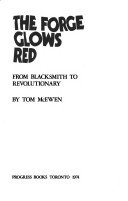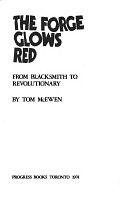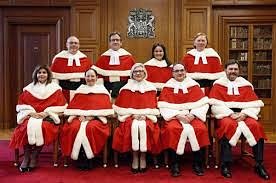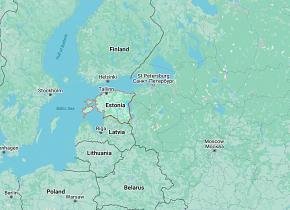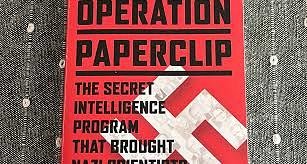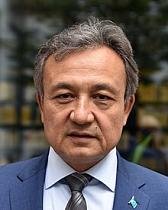Tom McEwen: Scotland to Canada -- Blacksmith to revolutionary
Thomas Alexander McEwen was born in Stonehaven on February 11th, 1891. The Aberdeenshire town is well-known for its fireballs ceremony at Hogmanay, flooding and the invention of deep-fried Mars bars. Other more famous sons of Stonehaven include Robert William Thomson (1822-73), the original inventor of the pneumatic tyre; Hercules Linton, Cutty Sark designer from nearby Inverbervie; and Lewis Grassic Gibbon, Arbuthnott and the Mearns, Scotland’s greatest 20C author.
May 11th marks the 25th anniversary of Tom's death in 1988, aged 97. His father Alex fought and died in the Boer War: several years after his mother Agnes had died of tuberculosis. Tom was raised by a guardian, Annie Wishart, in Luthermuir, Angus, Scotland.
While under the guardianship of Annie, Tom’s imagination grew and expanded. Through the stories told to him by Annie, Tom learned of Robbie Burns, Rob Roy MacGregor, of other men and women whose songs and writings told of struggle and revolt. Tom left the Wishart’s at age 9 to live with his Aunt in the picturesque fishing village of Catterline, south of Dunnottar Castle. Tom spent much time reading to his Aunt Susan, for while she was herself illiterate she possessed an insatiable hunger for knowledge and a profound respect for learning, plus a burning curiosity for the news. So Tom read to her from the paper and from books and magazines - writers like Shakespeare, Dickens and Thackeray.
Tom's childhood was marked by extreme poverty and an instinctive class-hatred for the gentry and aristocrats. He writes of that time:- ‘My foster parents or guardians didn’t teach me to hate the social division in our little world. They could not, nor did they have to. It was in the air we breathed, the humble fare we ate, the endless patching and makeshift to keep us clothed, the tenure of the roof over our heads, the poverty which was ever their lot, the search for fuels to fend off winter’s cold; our need to ‘crook the knee’ to the gentry, to keep on the ‘right side’ of the laird.’ This was only a generation after the mass and ruthless evictions of peasantry by the aristocracy. During the Highland Clearances, landless peasants were driven into unwilling emigration to the colonies - Nova Scotia for example.
When Tom was 13, he left the village and went to Aberdeen, finding work firstly as a baggageman on the Great North of Scotland Railway, then as a hostler (horse flunky), orra man (general roustabout) on a farm, before apprenticing as a blacksmith.
At 19, McEwen married his sweetheart Isobel Taylor and, following the birth of Jean, their first child, Tom sailed from Glasgow in May of 1912 to Canada: Isobel and Jean followed a year later. Tom began his blacksmith's career soon after arriving in Canada, and joined the Blacksmiths and Horseshoers Union. Beyond paying dues, he wasn’t very active in the union at this time. The family grew to include two daughters and two sons by 1920, when Isobel tragically died in the Spanish Flu epidemic, which claimed more than 22 million lives worldwide.
Tom joined the Socialist Party of Canada in 1920, then the Saskatoon Workers Party which became a branch of the newly formed Communist Party of Canada. McEwen was branch secretary and leader until 1927, when he moved to Winnipeg to work full-time as the Party's organizer for Manitoba and Saskatchewan. “I had chosen the 'Holy Grail' of Communism because I had already been convinced, a conviction which began in my childhood days, that a new and brighter future must inevitably follow this economic, social and political chaos which brought recurrent tragedy and ruin to the great majority of mankind. To choose, as Dimitrov put it, whether to be the ‘hammer’ or the ‘anvil’ in human affairs; to pound or be pounded upon? I have never had occasion to regret that choice when I took up the ‘hammer’."
In 1929 Tom moved to Toronto to become the party's industrial director. He helped found the Workers' Unity League (WUL) and became its General Secretary. The WUL was the Communist Party's "red union" centre and focused on organizing and building revolutionary industrial unions. At its height the WUL consisted of 40,000 workers organized in the mining, lumber, fishery, needle trade, metal, marine, domestic and hotel industries, together with multiple groups of organized unemployed workers. In 1930 McEwen led a WUL delegation to Ottawa where he met Prime Minister R.B. Bennett – they hated each other immediately - to demand the institution of a system of Unemployment Insurance. Bennett refused, saying:- "Never will I - or any government which I am a part - put a premium on idleness or put our people on the dole." In 1935 McEwen was a lead organizer of the On-to-Ottawa Trek of unemployed people which was violently broken up in a brutal police attack upon the assembly in Regina, Saskatchewan.
In 1931, McEwen and seven other leading Communists were arrested following raids on the National offices of the Communist Party of Canada and the WUL. The eight, including Communist Party leader Tim Buck, were sentenced to five years in Kingston Penitentiary for sedition. They were charged under a section of the Criminal Code (Section 98), which had been enacted during the First World War; it declared unlawful any association advocating the use of force to change society. As a result of the Winnipeg General Strike in 1919, Section 98 had been broadened to allow for the arrest of anyone suspected of seditious conspiracy. They were freed in 1934 following a mass campaign for their release.
Tom was chosen by the Communist Party in 1938 to go to Moscow and work for the Communist International for a two-year term. Upon his return to Canada in 1940 he was arrested under the Defence of Canada Regulations and charged for “continuing to be a member of the Communist Party", which had again been declared illegal as a result of World War II. He was sentenced to two years of hard labour in the Manitoba provincial jail. He was released in 1941 but was then detained under the orders of the federal government and interned with other Communists at a detention camp in Quebec. Internments ended by 1943 when the Soviet Union became an ally after Germany invaded the USSR. The banned Communist Party was permitted to reorganize itself as the Labour-Progressive Party (LPP). For the 1945 federal election, the party sent McEwen to the Yukon to be its candidate. The local unions supported McEwen and the LPP's platform of support for collective bargaining, family allowance, old age pensions, workers’ compensation and equality for Indians and Eskimos. McEwen won 32% of the vote, coming within 162 votes of being elected.
Subsequently McEwen moved to Vancouver, British Columbia where he was appointed editor of the Party's west coast newspaper, the Pacific Tribune, which he edited until his retirement in 1970. In 1974, he published his autobiography, 'The Forge Glows Red: From Blacksmith to Revolutionary', a rambling account of his years as a communist functionary.
Tom’s daughter, Jean Ewen (1911-1988), recorded her years of nursing in 'China Nurse' 1932-1939. She was working with Henry Norman Bethune, a Canadian physician and medical innovator, in wartime units for the Chinese Liberation Army Eighth Route during the Second Sino-Japanese War. Additionally Bethune had developed a mobile blood-transfusion service for the Republicans during the Spanish Civil War. Jean also wrote her memoirs 'Nae Glaikit' (note the Scots language; it means 'not daft') in 1981. The opening lines are:- ‘My father and I had never been close. After my mother died in the flu epidemic, he took my brothers, sister and me to live on a ranch in Saskatchewan where he worked as a blacksmith. While we lived there, the rancher’s wife introduced my father to socialism, which she had studied at the Rand School of Socialism in New York. Before long, my father was reading 'Das Kapital', and by the time he left the ranch in 1924, he was ready for the Revolution, in which he could play a more interesting role than that of being a father to his four children.’
In his own autobiography, Tom credits the devotion, courage and love of his second daughter Isobel in helping him hold the family together after the death of his wife. He says that she taught him “the simple characteristics of a good communist by her great-hearted devotion, loyalty and love, not only to her own family, but to all of humanity, neighbour and stranger alike.†Tom’s sons, Jim and Bruce, fought in the Spanish Civil War (1936-9) with the Mackenzie-Papineau Battalion of the International Brigades.
Comments
There are 0 comments on this post


